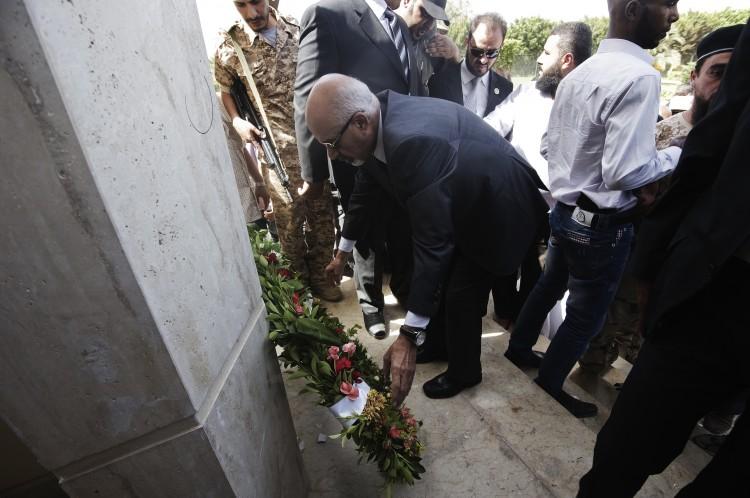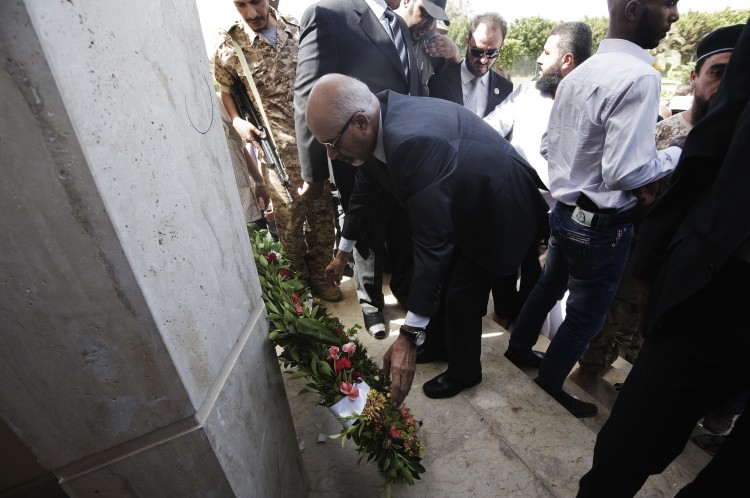There is still no official line on whether the Sept. 11 attack on the U.S. Embassy in Libya was planned by terrorist groups or whether it was militants who took the protests against an anti-Muslim film as an opportunity to meet their own goals.
The latest statement regarding this came on Wednesday from Matt Olsen, director of the National Counterterrorism Center, during a hearing of the Senate Committee on Homeland Security.
Regarding the four Americans killed at the embassy, including an ambassador, Olsen said, “I would say yes, they were killed in the course of a terrorist attack on our embassy,” according to Foreign Policy magazine. He added that they are “looking at indications” that the people involved were part of terrorist groups.
They key point is still not resolved, however, since as Olsen said, “We are looking at indications that individuals involved in the attack may have had connections to al Qaeda or al Qaeda’s affiliates; in particular, al Qaeda in the Islamic Maghreb.”
Olsen’s statement is not much different from what the Obama administration has already said. On Sept. 12, Secretary of State Hillary Clinton said, “Heavily armed militants assaulted the compound and set fire to our buildings,” according to a statement on the State Department’s website.
President Barack Obama also referred to this as “an attack on our diplomatic post in Benghazi,” and noted, “No acts of terror will ever shake the resolve of this great nation, alter that character, or eclipse the light of the values that we stand for.”
The Libyan government, meanwhile, is claiming that this was a planned attack that would have happened regardless of the video, “Innocence of Muslims,” which was released nearly three months prior.
Libyan Interim President Al-Magariaf told Al-Jazeera news in an interview, “It’s clear from the timing, on Sept. 11, and from the detailed planning of the attacks, indicates that behind it there was experienced masterminds. It was not a spontaneous act in protest of the movie. This has been prepared for a long time, on this specific day.”
According to Max Abrahms, terrorism expert and a fellow at John Hopkins University, if the Obama administration is saying that the attacks were spontaneous, “It indicates that they think the problem is rather fundamental, in terms of our lack of popularity on the ground,” Abrahms said. “Militant groups can be overlooked, but you can’t overlook the will of the population.”
Meanwhile, the Libyan government’s claim that the attacks were planned by extremist groups would mean that the attacks may not reflect the broad opinion of the public. Abrahms notes in taking this stance, “That would make perfect sense for them to do that.”
The difference between the Libyan government’s stance and that of the U.S. government, however, may be merely a difference of perception.
This ties back to the Libyan elections in July, which saw a non-Islamic party win the majority of seats. This was a major blow to Islamist groups, particularly the Arab Islamic extremists, the Salafists—who only last month destroyed Sufi shrines in Libya, according to Reuters.
A Stanford University report states, “Salafists have felt marginalized and threatened. Like in Egypt, they have played on anti-American sentiments to appeal to the population.”
The report outlines a discussion with Lina Khatib, head of the Program on Arab Reform and Democracy at Stanford University’s Center on Democracy, Development, and the Rule of Law.
“The production of the U.S. film provided them with a way to orchestrate a high-profile action with several aims: sending a message of defiance to seculars and to the West; appealing to the local population; and proving that while they may have lost politically, they are still a force to be reckoned with militarily,” Khatib said.
The general idea of the report is that the “threat of democracy” was likely the motivation behind the killings. To this, Jere Van Dyk, author and journalist who lived alongside Afghanistan’s Mujahideen in the 1980s and who was taken prisoner by the Taliban in 2008, could not agree more.
He told The Epoch Times that the Taliban fighters who held him captive referred to democracy as a “western religion,” and that the recent attacks are those fighters trying to prevent democracy from taking root.
Prior to the attacks, U.S. business delegations were visiting Egypt and Libya. This is part of the policy Obama announced in May 2011 to offer economic opportunities to countries overthrowing oppressive regimes in the Arab Spring.
Both Van Dyk and Abrahms believe that the killing of Abu Yahya al-Libi by a drone strike on June 4 played a large part in this. Abu Yahya al-Libi was a prominent member of al-Qaeda and a Libyan citizen—and was highly respected by Libyan militants.
The day prior to the attacks, al-Qaeda leader Ayman al-Zawahiri broadcasted a video calling on Libyans to avenge the death of al-Libi, and this was also the video where he spoke of the “Innocence of Muslims” video to incite anger.
“He said that, calling on the Libyans to extract revenge,” Van Dyk said. “And they did.”
The Epoch Times publishes in 35 countries and in 19 languages. Subscribe to our e-newsletter.







